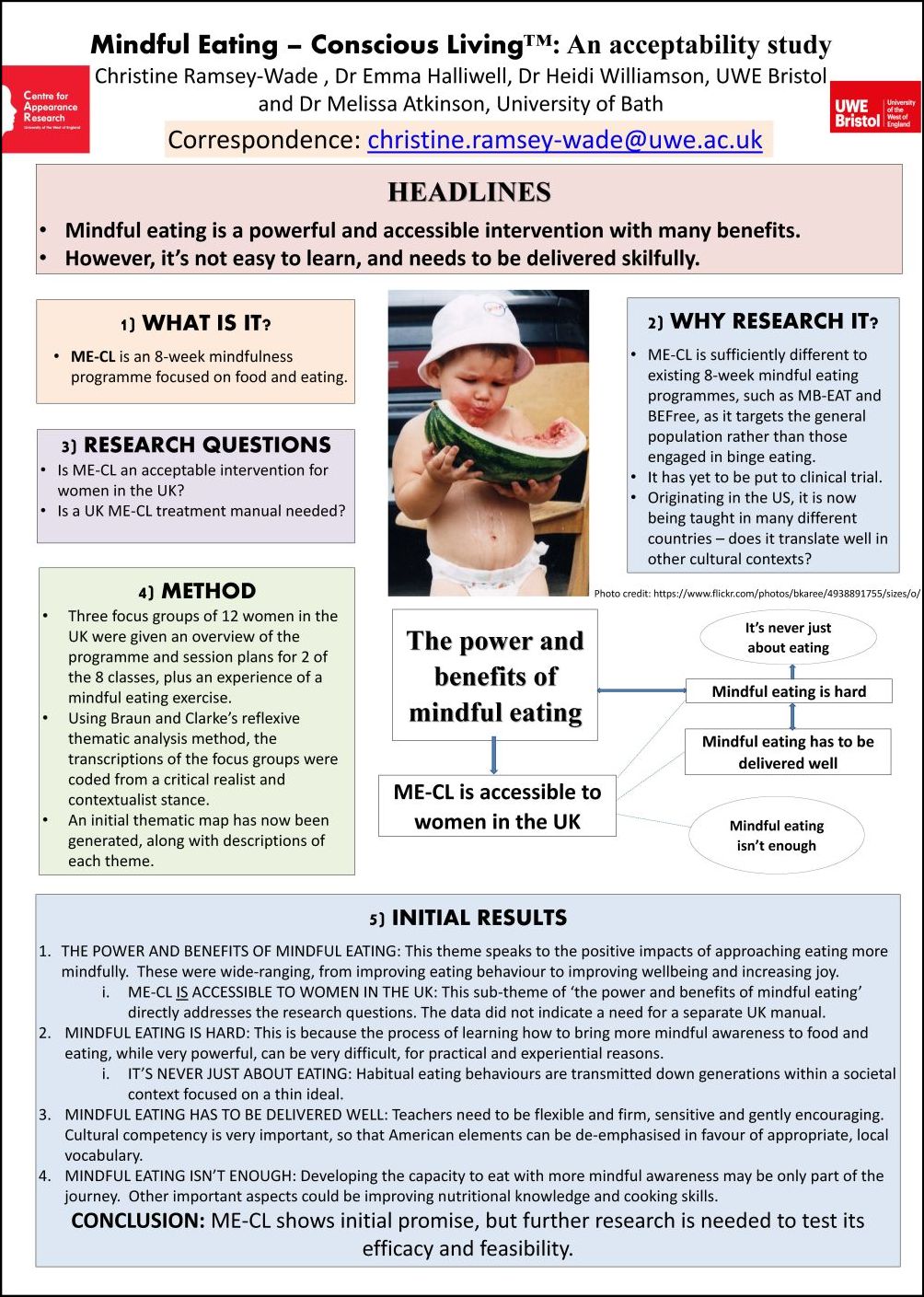
Aims or purpose
Mindful Eating – Conscious Living™ (ME-CL) is a mindfulness-based intervention originating in the US which aims to reduce anxiety around food and eating. While the programme is delivered widely, it has never been tested under research conditions. The aim of this study is to provide some acceptability, feasibility and efficacy data for this intervention.
Design and methodology
This paper will report the results from an initial qualitative study and an ongoing mixed-methods efficacy trial. The first stage of the project tested the acceptability or descriptive feasibility of the programme with a UK sample. Three focus groups (n = 12) were held with adult women in the UK with an interest in mindfulness and/or (un)healthy eating. Participants were asked to read an overview of the ME-CL programme and were asked for their views. 21 participants have now been recruited into the mixed methods efficacy trial. Four runs of the programme are planned, each with an initial control period, forming a non-randomised trial with an internal control. Pre, post, mid-way and one month follow up data on negative affect, mindfulness, disordered eating, self-objectification and body appreciation will be collected to explore outcomes and potential mediators, alongside qualitative data on the acceptability of the intervention.
Ethical approval
Ethical approval for all stages of the project was secured from the University of the West of England Faculty Research Ethics Committee before recruitment began.
Results and findings
Results from the qualitative acceptability study indicated that, while some minor changes may be needed to accommodate differences in language, no major changes were felt to be required. However, the data does suggest some useful points of consideration for mindful eating teachers in the UK. This paper will disseminate these results in detail alongside the quantitative results from the first run of the efficacy trial.
Conclusions and implications
Subclinical disordered eating is widespread. Mindfulness in general, and ME-CL in particular, shows some initial promise to address this. This project aims to further explore the potential of mindfulness for disordered eating.
Views expressed in this article are the views of the writer and not necessarily the views of BACP. Publication does not imply endorsement of the writer’s views. Reasonable care has been taken to avoid errors but no liability will be accepted for any errors that may occur.
